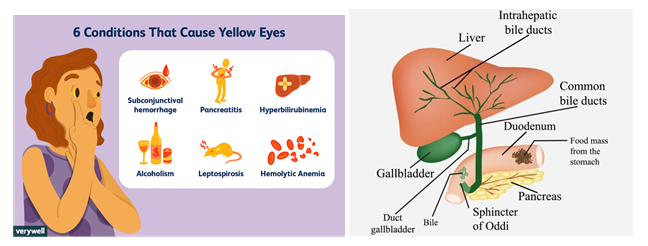The nurse is caring for an infant who was recently diagnosed with a congenital heart defect.
Which assessment finding is most important for the nurse to report to the healthcare provider?
Audible heart murmur.
Heart rate of 162 beats/minute.
Poor oral intake and suckling effort.
Weight gain of 2.2 lbs. (1 kg) in the last 48 hours.
The Correct Answer is C
Infants with congenital heart defects may have difficulty with feeding due to increased effort required to breathe and feed at the same time. This can lead to poor weight gain and dehydration. Thus, it is important for the nurse to report any signs of poor feeding or oral intake to the healthcare provider. While audible heart murmur (choice A) and a high heart rate (choice B) are expected findings in infants with congenital heart defects, they do not necessarily indicate a need for immediate intervention. Weight gain of 2.2 lbs. (1 kg) in the last 48 hours (choice D) may actually be a positive finding in an infant with a congenital heart defect, but it is not as important to report as poor oral intake and suckling effort.

Nursing Test Bank
Naxlex Comprehensive Predictor Exams
Related Questions
Correct Answer is B
Explanation
The adolescent's symptoms suggest that their blood glucose levels may be very high. Obtaining a point-of- care glucose reading is the first step in assessing the adolescent's current blood glucose levels and determining the appropriate course of action.
Reviewing prior insulin prescriptions, assessing urine for ketones, and checking blood pressure are also important interventions but should occur after the blood glucose level has been determined.
Correct Answer is B
Explanation
Biliary atresia is a condition that can cause jaundice in newborns and infants, and it can also lead to tea-colored urine due to the presence of bilirubin in the urine. Infants with biliary atresia require further assessment and treatment, including possible surgery, to prevent liver damage and other complications.
A. Intussusception is a condition in which a part of the intestine folds into itself, causing an obstruction, but it does not typically present with jaundice or tea-colored urine.
C. Hirschsprung's disease is a congenital condition that affects the large intestine and can cause bowel obstruction, but it also does not typically present with jaundice or tea-colored urine.
D. Huntington's disease is a genetic neurological disorder that typically does not present in infants and does not cause jaundice or tea-colored urine.

Whether you are a student looking to ace your exams or a practicing nurse seeking to enhance your expertise , our nursing education contents will empower you with the confidence and competence to make a difference in the lives of patients and become a respected leader in the healthcare field.
Visit Naxlex, invest in your future and unlock endless possibilities with our unparalleled nursing education contents today
Report Wrong Answer on the Current Question
Do you disagree with the answer? If yes, what is your expected answer? Explain.
Kindly be descriptive with the issue you are facing.
